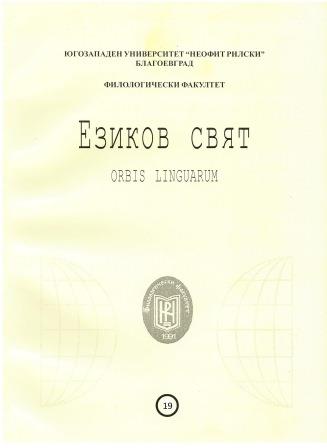АБСТРАКТНИ ДЕВЕРБАЛНИ ФОРМАЦИИ С ОСНОВИ ОТ ГРЪЦКИ ПРОИЗХОД
ABSTRACT DEVERBAL FORMATIONS WITH BASES OF GREEK ORIGIN
Author(s): Nataliya SotirovaSubject(s): Language and Literature Studies, Theoretical Linguistics, Lexis
Published by: ЮГОЗАПАДЕН УНИВЕРСИТЕТ »НЕОФИТ РИЛСКИ«
Keywords: hybrid formations; Greek borrowings; Bulgarian suffixes; productive bases; deverbal abstract nouns
Summary/Abstract: The object of analysis here are the deverbal abstract nouns with roots of Greek origin and Bulgarian suffix. Most of them are motivated by fully adapted verbs borrowed from Greek and of particular interest from the perspective of word formation are the secondary derivatives formed from denominative verbs motivated by Greek nous and adjectives. The transformation of borrowed words into productive bases, which are combined with local word-forming suffixes, is the final stage of the complex process of lexical borrowing, which follows the stage of morphological adaptation of borrowed words, i. e. their grouping into a certain lexical-grammatical type. Many of them have formed large groups of derivatives. Being composed of elements of different languages, the new lexemes are hybrid in nature regarding their word-formation and their separation into a special category reflects the new status of the Greek bases of the borrowings. The hybrid formations of this type are the final result of the assimilation of the Greek loan words into the Bulgarian language, which is why they occupy a specific position in the Bulgarian lexical fund. The use of some of them is dialect or archaic, but they all contribute to the enrichment of the vocabulary and the ways of expression in Bulgarian.
Journal: Езиков свят - Orbis Linguarum
- Issue Year: 19/2021
- Issue No: 3
- Page Range: 089-096
- Page Count: 8
- Language: Bulgarian

